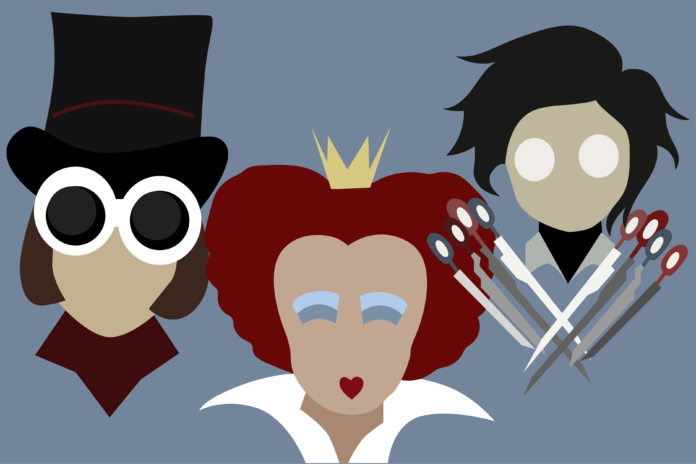Can art be separated from the artist?
By CLARA FISCHER — arts@theaggie.org
The name “Tim Burton” brings many images to mind. His signature movie style is so distinct and unmistakably his own — the muted color scape, eerie character design and twisted dark nature are all characteristic of a Burton film.
However, a more disturbing image that comes to mind is the overwhelming whiteness permeating all of his movies.
Many (myself included) consider his films to be classics. Watching “The Nightmare Before Christmas” was a distinct Halloween tradition in my childhood, and it still is a telltale marker of the season for me. Other standouts in his extensive filmography include “Corpse Bride,” “Edward Scissorhands,” “Beetlejuice” and more, all marked by his signature gothic flair.
But are fond childhood memories enough to justify a startlingly severe lack of diversity? Even though Burton creates works of visual genius and clearly has a knack for all things grim and sickly romantic, his disregard for inclusivity is inexcusable.
When word got out that Burton was set to direct the 2016 book-to-film adaptation of “Miss Peregrine’s Home for Peculiar Children,” many were quick to point out that Samuel L. Jackson would be the first Black actor to lead one of his films.
Burton had a rather controversial (albeit vague) response to the criticism. When asked about the importance of including representation in the media, he said “Nowadays, people are talking about [diversity in film] more… Things either call for things or they don’t.”
Naturally, this indifferent attitude sparked backlash online. This explosive response from the internet is characteristic of the so-called “cancel culture” of the 21st century and touches upon the debate of whether or not art can be separated from the artist.
Plenty of popular artists have fallen into this same disturbing pattern — they rise to fame, are adored for their artistic ability, have their horrible past exposed and then proceed to become absolutely vilified online. Chris Brown is one of the more well-known examples of this phenomenon, but even artists from long ago, such as Richard Wagner, have come under fire for their actions.
Clearly, there have always been issues that arise when people are given so much acclaim and popularity. Just because someone has artistic ability and is brilliantly gifted does not mean that their morals are going to align with what most people consider “good.”
The question then becomes more complicated — are fans ready to give up the art in order to denounce the actions of the artist?
To make matters even more complex, there are other social factors that go into determining whether a person is “canceled” or not. There are many opinion pieces online that delve into great detail about how someone’s identity — such as gender, race, religion and other elements — can impact the hit their career will take when they spark controversy online.
Ultimately, it is up to the consumers of entertainment to determine the consequences of public figures committing immoral actions. In areas where the legal system does not reach, money still has real power, and fans have the final say in who gets a platform.
Written by: Clara Fischer — arts@theaggie.org




